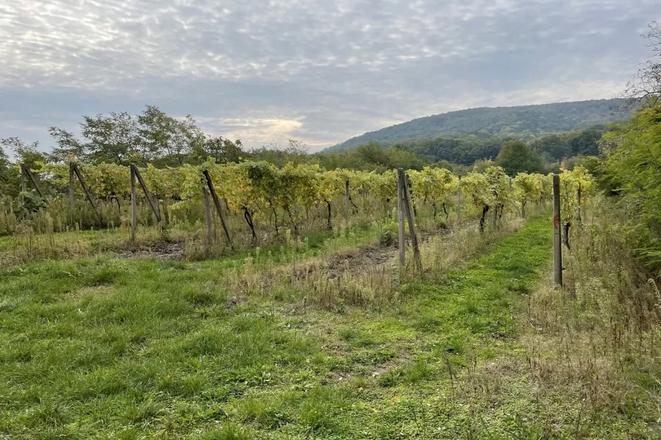Grape growing and wine production have a long tradition in the Slovak capital and this is proven by historical records. While wine was the only significant export product of medieval Pressburg, present-day Bratislava, from the 14th to the 18th centuries, a basket of local wine in northern Italy cost three times as much as the basket of regular Ugrian wine. Even in Bavaria, they wrote that “Pressburg wine is good, but bloodily expensive,” recalled historian Juraj Šedivý.
The Bratislava city council wants the long tradition to continue. They have decided to rent out vacant municipal vineyards. The capital owns and manages approximately 15.5 hectares of vineyards, of which eight hectares do not have a tenant for now, with a significant proportion neglected.
Winegrowers and wine makers see this as a sign that the city has resolved to protect its vineyards and take care of those under its ownership. The Račiansky Spolok civic association, which is behind the Račanský Vinohradnícky Chodník (Rača Vineyard Path) project in Bratislava’s borough of Rača to promote local wine, considers the plan of finding new tenants as one appropriate tool to achieve this.
“It is realistic if the city manages to find suitable tenants to ensure the maintenance or renewal of the municipal vineyards,” Matúš Burian, chairman of the association, told The Slovak Spectator.
At the end of 2021, the city council promulgated two public tenders for the leasing of several vineyards in Rača and Vinohrady, both boroughs well known for their wine production. The rent in Rača was set at €79.60/ha per year and in the Vinohrady borough at €31.46/ha per year, with the tenant also committing to hand over 10 percent of the harvest in the form of wine to the city.
However, the tenders resulted in the selection of only one tenant, Marek Kopriva, for three vineyards in Rača totalling less than 0.37 hectares. He plans, together with his friends, to create a community vineyard. Dagmar Schmucková, a city spokesperson, specified that he will pay a rent of €30 per year for these vineyards.



